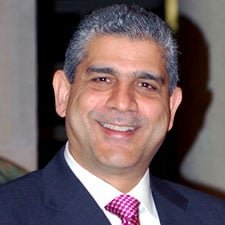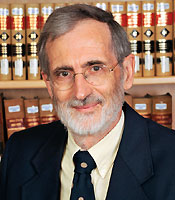 Sovereignty and a New Reality: Palestinian Statehood at the United Nations
Sovereignty and a New Reality: Palestinian Statehood at the United Nations
By Jessica Gabriel / CNI
Ambassador Areikat spoke to the question of why the PLO is only now bringing this request to the UN – stating that US President Barack Obama’s speech at the UN General Assembly in September 2010 served as a point of encouragement for the action.
With little fanfare and understated ease, the Ambassador of the Palestine Liberation Organization (PLO) to the United States spoke in Washington, DC on Tuesday. The event, entitled “Sovereignty and a New Reality: Palestinian Statehood at the United Nations”, took place at the Palestine Center, a part of the Jerusalem Fund.

The panel also included Professor John B. Quigley, a law professor at Ohio State University. Together, he and Ambassador Maen R. Areikat spoke to the request for Palestinian statehood that is expected to be brought to the United Nations in September.
Professor Quigley took the podium first, outlining the legal framework of a request for membership in the UN. This included a description of the possible scenarios that could occur, including a request made to the Secretary General that then goes through the Security Council and then the General Assembly.
Quigley took care to mention that the drafting process of the UN Charter indicates that the General Assembly has to consider the Security Council recommendation but could possibly act of its own accord. Therefore, any decision on membership would be made by the General Assembly. This would create a space in which the Palestinians may find a little breathing room from the pressures of the US veto power.
Furthermore, Quigley clarified the meaning of the term ‘state’ itself, specifically noting that when an entity is accepted by other states as a state, then it is a state. He acknowledged that Palestine does, in that sense, already constitute a state, based on recognition by Brazil, Argentina, and Uruguay.
 Ambassador Areikat focused on the political implications of UN membership. Areikat stressed that in this act, the Palestinians are not looking for recognition or a unilateral decision – rather, they are simply seeking admission to and legitimacy in the international arena.
Ambassador Areikat focused on the political implications of UN membership. Areikat stressed that in this act, the Palestinians are not looking for recognition or a unilateral decision – rather, they are simply seeking admission to and legitimacy in the international arena.
“The cost of the occupation is being subsidized by the international community,” Areikat said. However, he emphasized that this move on the part of the Palestinians is “not delegitimizing Israel, but legitimizing Palestine.”
The question and answer portion of the event revealed further details, including an affirmation of the PLO concession to return to 1967 borders, as well as a response to the notion of dissolving the PA if UN membership goes through. “It has provided Palestinians with a foundation for statehood,” Areikat mused, recognizing that the absence of the PA would create a political and security vacuum and uncertainty as to who would fill that vacuum.
Areikat also spoke to the question of why the PLO is only now bringing this request to the UN – stating that US President Barack Obama’s speech at the UN General Assembly in September 2010 served as a point of encouragement for the action.
As some may recall, the following is an excerpt of what President Obama said in that speech: “We should reach for what’s best within ourselves. If we do, when we come back here next year, we can have an agreement that will lead to a new member of the United Nations – an independent, sovereign state of Palestine, living in peace with Israel.”
President Obama’s words and the very recent admission of South Sudan into the UN have both set the stage for this moment. Needless to say, as the end of July deadline for the submission of the request approaches, the eyes of the Palestinians – and the world – will be watching.
For details and video coverage of the event, see:
VIDEO: Sovereignty and a New Reality: Vote for Palestinian Statehood
This lecture examines the September Palestinian Statehood vote at the United Nations and the implications its result will have on Palestine, israel and the Arab world.
Possibly Related Post:
- Criticize Israel and Lose Your Career
ATTENTION READERS
We See The World From All Sides and Want YOU To Be Fully InformedIn fact, intentional disinformation is a disgraceful scourge in media today. So to assuage any possible errant incorrect information posted herein, we strongly encourage you to seek corroboration from other non-VT sources before forming an educated opinion.
About VT - Policies & Disclosures - Comment Policy




